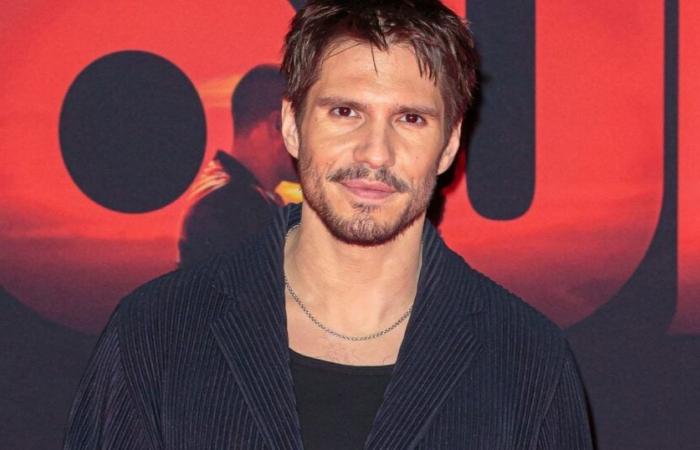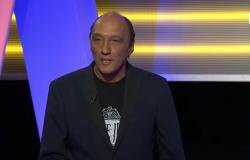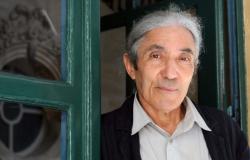
The triumph of “L'amour ouf”, the latest film by Gilles Lellouche, cannot be denied: the third biggest French success of the year, the film, presented at Cannes last May, topped the box office after three weeks of operation, and should pass the three million admissions mark this week. With an intergenerational cast, a love story that spans the decades, and visually polished production, this unclassifiable film, between musical comedy, romance and thriller, seems to bring together all the ingredients in a box. But if we are to believe the public and critical reception, another aspect of the film seems to have particularly contributed to its popularity: its soundtrack, rich in emblematic titles from the 80s and 90s.
“They have gone crazy, but completely crazy in terms of prices”
The Cure, Prince, Daft Punk and even NTM, this eclectic soundtrack, supervised by Emmanuel Ferrier, cost producers Alain Attal and Hugo Sélignac dearly, who spent “around 750,000 euros” to use the pieces in the film, they revealed in an interview with BFMTV. “And again, it must have been more expensive, but little by little, there was a desire on Gilles' part to lower the sail a little so as not to make a jukebox with his film.“These songs, emblematic and nostalgic, accompany and highlight the key moments of the film, allowing the viewer to travel through the eras with the characters. But despite this carefully crafted playlist, a title, although very dear to the director, has not been ultimately unable to appear there during an interview with “Allociné”, Gilles Lellouche actually confided that he dreamed of including “.Never Tear Us Apart”a cult song by the Australian group INXS.
ALSO READ: Box office: “L'amour ouf” already exceeds 2 million admissions, good start for “Monsieur Aznavour” with Tahar Rahim, the “Joker” 2 ejected from the Top 10
This emblematic title, also used in the American series “Euphoria”, embodied for him the spirit and intensity that he wanted to convey in certain scenes of the film. But faced with the exorbitant price of usage rights, the director had to revise his plans. “There is music that escaped me for a question of money, of budget, because this music was taken from the series 'Euphoria.' And as a result, they went crazy, but completely crazy in terms of prices. This is an INXS song. 'Never Tear Us Apart'. So, I did without this music, but I didn't miss it”confides the filmmaker. The cost of this song was in fact 200,000 euros, a price out of reach for the film's budget.
For comparison, the rights of “A Forest” by The Cure, another song featured in the film, cost 15,000 euros. “The music that is really essential to the film is in it.“, adds Gilles Lellouche. “Those, at least that I had in my head for 17 years. It's The Cure, it's Billy Idol, Foreigner and the rap song.“Gilles Lellouche was not the only one to have to make concessions on the soundtrack. François Civil, who plays one of the main roles, also had to play a piece on the piano in a scene which was ultimately cut from the script. This sequence, which would have incorporated Al Stewart's “The Year of the Cat”, was originally written into the script, but the price of the song rights forced the team to remove it.This one was marked in the script“, confides the actor. “She was there from the start. But the rights holders of this group, Al Stewart, who no one knows, went crazy over the prices“, confirms the director.
For Gilles Lellouche, the budget devoted to the film's songs required careful management and strategic choices. Indeed, the director had to take into account a particular condition: the rights to “A Forest” by The Cure, the acquisition of which he thought would cost much more, were linked to a parity clause. “The rights holders of The Cure told us: 'Be careful, if a song is more expensive than ours, we will index it at the price of the most expensive'. So, if I started to take a piece that cost a fortune, it increased all the others, and it reduced my little purse!“, says the director. A system which forced him to make trade-offs to stay within the allocated budget.
The difficulty of acquiring the rights to popular songs remains a common obstacle in French cinema, where film budgets are often lower than those of American productions. Indeed, international hits are rarely used in French films, mainly for budgetary reasons. In addition to the financial question, the refusal of the artists themselves or the rights holders to use a song can also put an end to negotiations. Sasha White, music supervisor, emphasizes on BFMTV that “in 90% of cases, it's a question of time or money“. According to her, in France, only around ten professionals exercise this booming profession, which consists of translating the world of directors into musical choices adapted to the film.





